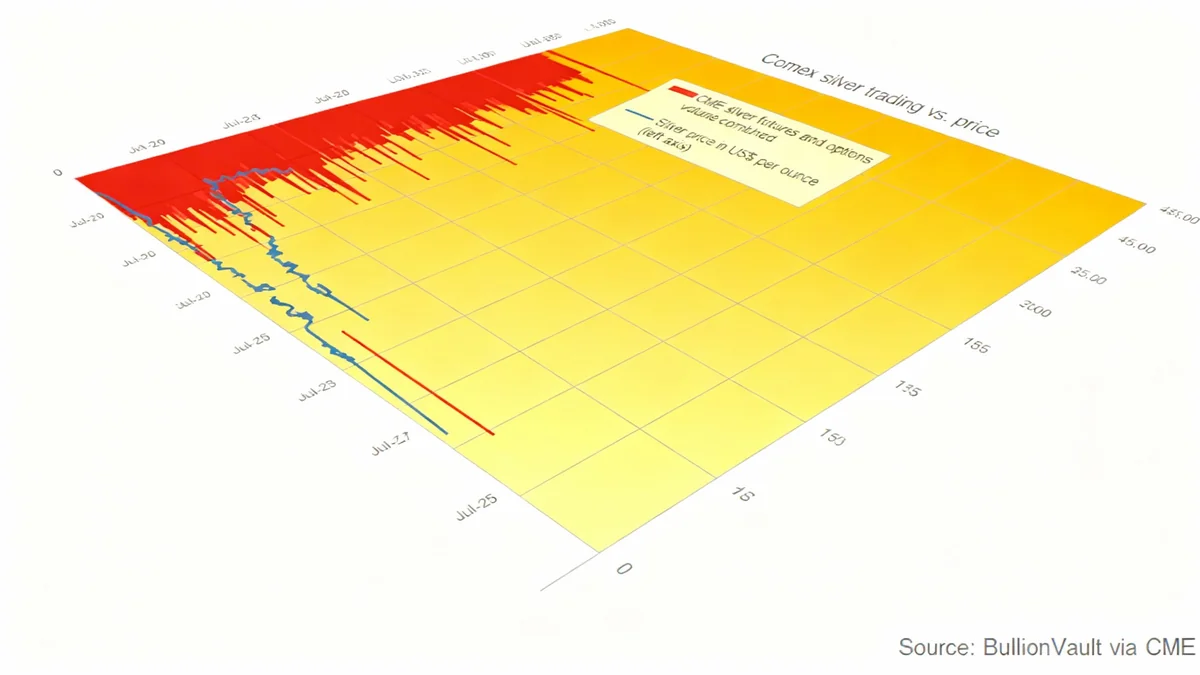The Invesco QQQ Trust (QQQ), a prominent exchange-traded fund that tracks the Nasdaq 100 index, has demonstrated significant year-to-date growth despite recent short-term declines. Over the past five trading days, the ETF experienced a 2.92% drop, yet it maintains a robust gain of 15.8% since the beginning of the year, reflecting broader market volatility and the specific pressures on the technology sector.
Key Takeaways
- The Invesco QQQ ETF is up 15.8% year-to-date but has seen a recent 2.92% decline over five days.
- Analyst consensus rates QQQ as a "Moderate Buy" with a potential upside of 14.45% based on an average price target of $674.70.
- The ETF's performance is closely tied to the technology sector and can be influenced by geopolitical events, such as U.S.-China trade relations.
- Key holdings like MicroStrategy (MSTR) and Atlassian (TEAM) show high upside potential, while others like Intel (INTC) and Tesla (TSLA) present downside risks.
Understanding the Invesco QQQ ETF
The Invesco QQQ Trust is one of the most widely traded ETFs in the world. Its primary function is to mirror the performance of the Nasdaq 100 Index (NDX), which comprises the 100 largest non-financial companies listed on the Nasdaq stock market. Due to the composition of this index, QQQ is heavily weighted towards technology and growth-oriented companies.
This concentration means that the ETF's value is highly sensitive to the performance of major tech giants. Investors often use QQQ to gain broad exposure to the innovation and growth potential of the technology sector without having to purchase individual stocks. However, this also means the fund is susceptible to sector-specific downturns and regulatory news affecting tech companies.
What is an ETF?
An Exchange-Traded Fund (ETF) is a type of investment fund that is traded on stock exchanges, much like individual stocks. An ETF holds assets such as stocks, bonds, or commodities. The Invesco QQQ ETF, for example, holds a portfolio of stocks designed to track the Nasdaq 100 index.
Recent Performance and Market Pressures
While the year-to-date gain of 15.8% is substantial, the recent decline highlights the fund's volatility. A notable example of this sensitivity occurred when the ETF dropped 3.5% in a single day following escalating trade tensions between the United States and China. The U.S. President at the time had threatened increased tariffs and raised concerns over China's control of rare earth metals, which are vital for the technology and defense industries.
However, the market's reaction can be swift in both directions. Following assurances that trade relations would stabilize, the QQQ ETF showed signs of a quick recovery, gaining 1.8% in pre-market trading on the subsequent Monday. This pattern illustrates how macroeconomic and geopolitical news can directly impact the fund's short-term performance.
Performance Snapshot
- Year-to-Date Gain: +15.8%
- Five-Day Decline: -2.92%
- Index Tracked: Nasdaq 100 (NDX)
Analyst Ratings and Future Outlook
According to a weighted average of analyst ratings on its underlying holdings, the Invesco QQQ ETF currently holds a "Moderate Buy" consensus rating. This suggests that financial analysts, on the whole, believe the fund's components are positioned for future growth.
The average price target for the QQQ ETF is set at $674.70. Based on its current trading price, this target implies a potential upside of 14.45% for investors. This projection reflects optimism about the long-term prospects of the companies within the Nasdaq 100, despite potential short-term headwinds.
Further reinforcing this positive outlook is the ETF's Smart Score. Based on TipRanks' data analysis, QQQ has a Smart Score of eight out of ten. A score of eight or higher suggests that the ETF is likely to outperform the broader market averages over time.
"The Street’s average price target of $674.70 for the QQQ ETF implies an upside potential of 14.45%," according to TipRanks' analysis, which synthesizes ratings on the ETF's individual holdings.
Deep Dive into QQQ's Core Holdings
An ETF's performance is ultimately determined by the stocks it holds. Analyzing the individual components of QQQ reveals both significant opportunities and potential risks. Based on current analyst price targets, some holdings are expected to drive growth, while others may act as a drag on performance.
Holdings with High Upside Potential
Several companies within the QQQ portfolio have been identified by analysts as having significant room for growth. These stocks are key drivers behind the fund's bullish long-term outlook. The top five holdings with the highest upside potential are:
- MicroStrategy (MSTR)
- Atlassian Corporation (TEAM)
- Dexcom (DXCM)
- Charter Communications (CHTR)
- Intuitive Surgical (ISRG)
Holdings with Potential Downside
Conversely, some of the ETF's components face challenges that have led analysts to project potential declines in their stock prices. These stocks could limit QQQ's growth or contribute to volatility. The five holdings with the greatest downside potential include:
- Intel (INTC)
- Tesla (TSLA)
- Palantir Technologies (PLTR)
- Lam Research (LRCX)
- Electronic Arts (EA)
For investors, understanding this internal composition is crucial. The overall performance of the QQQ ETF will be a blend of these varying outlooks, with the larger-cap companies having a more significant impact due to the index's market-cap weighting.





